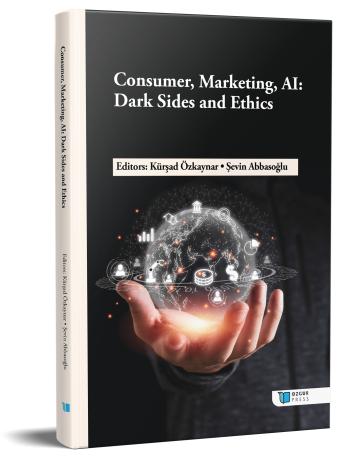
Algorithmic Biases and Injustice: Ethical and Practical Dimensions of Artificial Intelligence in Digital Marketing
Chapter from the book:
Özkaynar,
K.
&
Abbasoğlu,
Ş.
(eds.)
2025.
Consumer, Marketing, AI: Dark Sides and Ethics.
Synopsis
Digital marketing is undergoing a profound transformation with the rise of artificial intelligence (AI) algorithms. These technologies process large datasets to enable personalized campaigns and automation, while simultaneously introducing ethical and practical challenges. This article praises AI’s potential in marketing while examining the adverse effects of algorithmic biases, such as discrimination, loss of consumer trust, and risks to corporate reputation. A literature-based analysis reveals that biases stem from distortions in training data, shortcomings in design choices, and socio-cultural contexts. This leads to the exclusion or mis-targeting of specific groups in segmentation and targeting processes, creating unfairness in marketing strategies and acting as a catalyst for deepening societal inequalities. The study proposes solutions, including technical approaches (e.g., fair data processing techniques), ethical frameworks (e.g., transparency and accountability), and regulatory measures (e.g., international standards), offering a holistic framework for the responsible use of AI.

